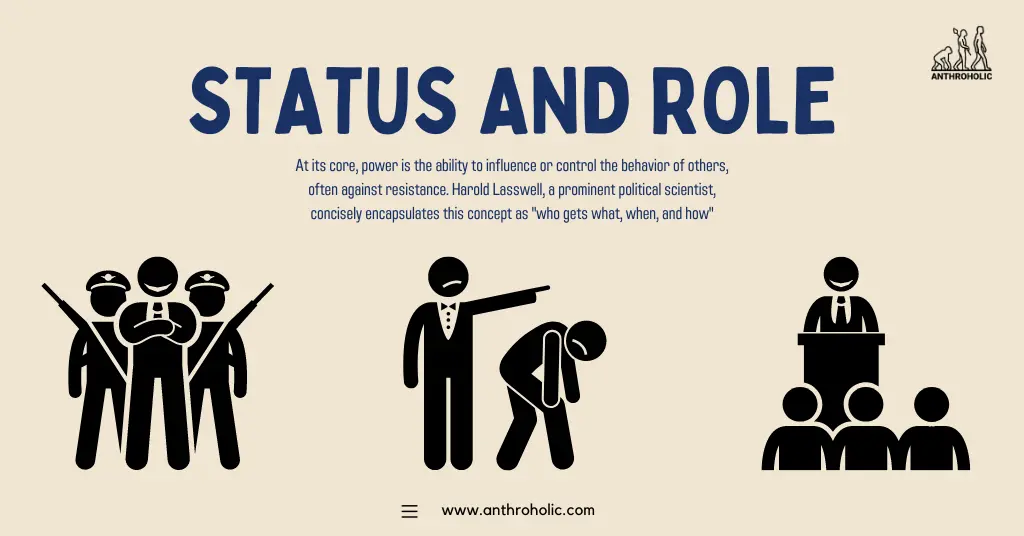Navigating Legal Translation In Iran: Challenges & Evolution
In an increasingly interconnected world, the accurate and nuanced exchange of legal information is paramount. Legal translation plays a vital role in the global exchange of legal information, ensuring that legal documents are accessible and understood across different jurisdictions. This necessity becomes even more pronounced in countries with distinctive legal frameworks. In Iran, a country with a unique legal system based on Islamic law, the demand for accurate legal translations is especially high. This is not merely about converting words from one language to another; it's about bridging complex legal concepts, cultural nuances, and intricate terminologies to ensure legal validity and comprehension.
The intricate nature of Iran's legal system, rooted in Islamic jurisprudence, presents a formidable challenge and an immense responsibility for legal translators. From international treaties to personal civil status documents, the precision of legal translation can have profound implications for individuals, businesses, and international relations. This article delves into the current status of legal translation in Iran, exploring its historical roots, regulatory frameworks, educational advancements, inherent challenges, and its crucial role in facilitating both domestic and international legal processes.
Table of Contents
- The Indispensable Role of Legal Translation in Iran
- A Glimpse into the History of Translation in Iran
- The Unique Landscape of Iranian Legal System
- Certification and Regulation: Ensuring Quality and Trust
- Education, Research, and the "Translation Movement"
- Challenges and Complexities in Legal Translation in Iran
- High-Stakes Translations: International and Official Documents
- The Future Outlook for Legal Translation in Iran
The Indispensable Role of Legal Translation in Iran
Legal translation is far more than a linguistic exercise; it is a critical conduit for justice, commerce, and international cooperation. In Iran, a nation with a distinct legal framework primarily derived from Islamic law, the demand for exceptionally accurate legal translations is particularly high. This heightened demand stems from various factors, including the need to facilitate international trade, support diplomatic relations, enable immigration processes, and ensure the proper administration of justice for both Iranian citizens and foreign nationals. The nuances of Persian (Farsi) legal terminology, combined with the specific interpretations of Islamic jurisprudence, mean that a simple word-for-word conversion is often inadequate and potentially misleading. Instead, legal translation in Iran necessitates a deep understanding of both the source and target legal systems, cultural contexts, and the precise implications of every phrase. It ensures that legal documents, whether contracts, court rulings, statutes, or personal certificates, retain their original legal force and intent when rendered into another language, thereby upholding the principles of transparency and legal certainty in cross-border interactions.
- Ambar Driscoll Age
- Who Is Ashley Judd Married To
- Sloane Momsen
- Gloria Carter Spann
- Logan Paul Dating History
A Glimpse into the History of Translation in Iran
The practice of translation in Iran is not a recent phenomenon; its roots stretch back to prehistoric times, as evidenced by historical accounts such as those by Toosi (2000). For centuries, translation has served as a vital bridge for cultural, scientific, and intellectual exchange. The nineteenth century, in particular, marked a pivotal era of reform and gradual modernization in Iran. During this transformative period, translation provided an efficient means to access the knowledge and science of Europe, which was widely perceived as the epitome of success and prosperity by Iranian intellectuals. This historical imperative laid the groundwork for the formalization of translation as a profession and an academic discipline. Early translation efforts were crucial in introducing new concepts, technologies, and legal frameworks to Iran, facilitating its engagement with the wider world. This historical trajectory underscores the long-standing recognition of translation's importance in Iran's development, setting the stage for the specialized field of legal translation to evolve and adapt to contemporary global demands.
The Unique Landscape of Iranian Legal System
Understanding the unique legal system of Iran is fundamental to appreciating the complexities of legal translation within its borders. Iran's legal framework is primarily based on Islamic law, specifically Twelver Ja'fari Shia jurisprudence, which significantly influences all aspects of civil, criminal, and commercial law. This distinct foundation means that many legal concepts and terminologies do not have direct equivalents in common law or civil law systems prevalent in Western countries. For instance, concepts such as 'temporary marriage' (Sigheh), which gained international attention, or specific provisions related to women's legal status, as highlighted in various reports on Iranian women's rights, require not just linguistic translation but also careful contextualization and explanation to be understood by foreign legal professionals. The Iranian Civil Code, for example, is deeply intertwined with Sharia principles, making it imperative for legal translators to possess not only linguistic fluency but also profound knowledge of Islamic jurisprudence and its practical application in Iranian courts. This intricate blend of religious law and modern statutes necessitates a highly specialized approach to legal translation in Iran, where accuracy transcends mere word conversion and delves into the faithful conveyance of legal meaning and intent.
Certification and Regulation: Ensuring Quality and Trust
Given the critical nature of legal documents, the regulation and certification of legal translators in Iran are paramount to ensuring accuracy, reliability, and trustworthiness. The Iranian government, through its judiciary, plays a central role in this oversight. This structured approach helps maintain high standards and provides a framework for accountability, which is essential when dealing with documents that have significant legal ramifications. The certification process is rigorous, reflecting the high stakes involved in translating legal texts.
- Terri Welles Playmate
- Ara Celi Actress
- Eve Hewson Relationships
- Marcia Gay Harden Partner
- Dacre Montgomery Girlfriend
The Judiciary's Role in Translator Certification
It is worth noting that the Judiciary of the Islamic Republic of Iran administers a comprehensive certification examination and arranges an interview to assess the professional qualifications of prospective certified translators. This stringent process is designed to ensure that only individuals with a profound understanding of both languages and legal systems are authorized for rendering official and legal translation and court interpretation. Candidates are tested not only on their linguistic proficiency but also on their knowledge of legal terminology, ethical considerations, and the intricacies of Iranian law. Passing this examination and interview grants a translator the status of a "sworn" or "certified" translator, enabling them to officially stamp and endorse legal documents, thereby validating their authenticity and accuracy for use in legal proceedings, government offices, and international contexts. This centralized control by the judiciary underscores the importance placed on the integrity and precision of legal translation in Iran.
Official Translation Services and Their Scope
Certified translators in Iran provide a wide array of official translation services, catering to both natural and legal entities. These services are often certified by multiple authorities, including the judiciary, the Ministry of Foreign Affairs, and various embassies, depending on the document's intended use. For instance, official translation offices, such as "official translation office no. 484 based in Tehran," are certified to provide Farsi official translation services for all and any types of documents. This includes, but is not limited to, academic transcripts, birth certificates, marriage licenses, divorce decrees, power of attorney documents, corporate contracts, and court judgments. Copies and transcripts of civil status documents, for example, can be translated into any language by a sworn translator in Iran, or the translation can be done in the country of destination with further certification. The dual certification by the judiciary and the Ministry of Foreign Affairs ensures that these translated documents are recognized and accepted both domestically and internationally, facilitating everything from visa applications and international business dealings to legal disputes spanning multiple jurisdictions.
Education, Research, and the "Translation Movement"
The advancement of legal translation in Iran is closely linked to the development of translation education and research within the country. Recognizing the growing need for skilled professionals, Iranian institutions have made significant strides in fostering a robust academic environment for translation studies. This commitment extends beyond mere language training to encompass specialized fields like legal translation, acknowledging its unique demands and complexities. The establishment of dedicated research centers further underscores Iran's dedication to elevating the status and quality of translation.
Academic Institutions and Their Contributions
The formalization of translation education in Iran saw a significant milestone with the establishment of the College of Translation in Tehran, with the explicit aim of professionalizing the field. This institution, alongside other universities, has been instrumental in training generations of translators, equipping them with the necessary linguistic and cultural competencies. Beyond general translation, these programs often include specialized courses in legal translation, focusing on legal terminology, comparative legal systems, and translation ethics. Furthermore, the Research Institute for Translation Studies (RITS), affiliated with Allameh Tabataba'i University, stands as a prominent Iranian research center dedicated to initiating a "translation movement" and upgrading the status of translation in Iran. RITS plays a crucial role in conducting scholarly research, organizing conferences, and publishing academic works that contribute to the theoretical and practical aspects of translation, including the specialized area of legal translation. This academic infrastructure is vital for nurturing the next generation of expert legal translators.
Addressing Research Gaps in Legal Translation
Despite the historical significance of translation in Iran and the efforts of institutions like RITS, it seems that little research has been conducted specifically on the challenges of legal translation in general and legal translation training in particular within the context of Iran. While legal translation has been investigated in various languages and from different angles globally, the unique aspects of the Iranian legal system and the Persian language present distinct challenges that warrant more focused academic inquiry. Research gaps exist in areas such as the development of specialized legal translation corpora, the impact of specific Islamic legal concepts on translation equivalence, and the effectiveness of current training methodologies for aspiring legal translators. Addressing these gaps through empirical studies and theoretical explorations is crucial for refining translation practices, improving training curricula, and ultimately enhancing the quality and reliability of legal translation in Iran. This ongoing research is essential for ensuring that the field continues to evolve in response to new legal developments and global demands.
Challenges and Complexities in Legal Translation in Iran
The field of legal translation in Iran is fraught with inherent challenges that go beyond mere linguistic competence. The primary hurdle lies in the fundamental differences between the Iranian legal system, rooted in Islamic law, and the common law or civil law systems prevalent in many other countries. This divergence means that legal concepts, judicial procedures, and even the very structure of legal arguments can vary significantly, making direct lexical equivalents often impossible or misleading. Translators must navigate these conceptual gaps, often resorting to explanatory notes, transliteration, or functional equivalents, which demand profound legal knowledge in both the source and target languages. Furthermore, the evolving nature of Iranian law, influenced by ongoing societal and political changes, requires translators to constantly update their understanding. The precision required is immense; a single mistranslated term in a contract or a court document can lead to severe legal consequences, financial losses, or even miscarriages of justice. Moreover, the lack of standardized legal terminology glossaries across all legal domains and the limited specific research on the challenges of legal translation in the Iranian context, as noted previously, further complicate the task. This necessitates that legal translators in Iran possess not just linguistic prowess but also exceptional analytical skills, a meticulous attention to detail, and a robust ethical framework to uphold the integrity of the legal process.
High-Stakes Translations: International and Official Documents
The demand for precise legal translation extends significantly to international and official documents, where the stakes are exceptionally high. These documents often form the bedrock of diplomatic relations, international agreements, and cross-border legal proceedings. For instance, the process of elaborating a convention on the legal status of the Caspian Sea serves as a prime example of high-stakes legal translation. A special working group at the level of deputy foreign ministers was established in 1996 by the Caspian states to negotiate this complex document. The negotiation itself lasted more than 20 years before its signing on August 12, 2018, by the heads of five Caspian states at a summit in Kazakhstan. Throughout such protracted negotiations, accurate legal translation of every draft, amendment, and final text is absolutely critical to ensure that all parties fully understand and agree to the precise legal implications of the document. Similarly, the full text of the English translation provided by the Permanent Mission of Iran to the UN, such as its note 152 of July 6, 1993, reproduced from the U.N. Law of the Sea Bulletin, highlights the continuous need for Iran to present its legal positions and domestic laws accurately to international bodies. An English translation of the 1934 Act, for example, found in the UN Legislative Series, further illustrates the historical and ongoing commitment to making Iranian legal instruments accessible globally. These examples underscore the indispensable role of expert legal translation in facilitating Iran's engagement with the international community and upholding its legal standing on the global stage.
The Future Outlook for Legal Translation in Iran
The future of legal translation in Iran appears poised for continued growth and evolution, driven by increasing globalization and the persistent demand for accurate cross-cultural legal communication. As Iran continues to engage with the international community in various sectors, from trade and investment to diplomacy and cultural exchange, the need for highly skilled legal translators will only intensify. The ongoing efforts by institutions like the Research Institute for Translation Studies (RITS) to foster a "translation movement" and upgrade the status of translation in Iran are crucial for this progression. These initiatives, coupled with the rigorous certification processes administered by the judiciary, lay a strong foundation for maintaining high standards of quality and professionalism. Furthermore, the integration of technology, such as translation memory tools and terminology management systems, is likely to play an increasingly significant role in enhancing efficiency and consistency, though human expertise will remain irreplaceable due to the nuanced nature of legal language and the complexities of Iran's legal system. Addressing the identified research gaps, particularly in legal translation training and the development of specialized resources, will be key to further strengthening the field. Ultimately, the trajectory suggests a future where legal translation in Iran becomes even more sophisticated, adapting to new legal developments and technological advancements while continuing to serve as a vital bridge between distinct legal worlds.
Conclusion
The status of legal translation in Iran is a dynamic and multifaceted field, deeply intertwined with the nation's unique legal system, rich historical context, and growing international engagement. From its ancient roots as a conduit for knowledge exchange to its modern-day role in facilitating complex international legal agreements and ensuring individual rights, legal translation remains indispensable. The rigorous certification process overseen by the judiciary, coupled with the dedicated efforts of academic institutions like the Research Institute for Translation Studies, underscores a strong commitment to professionalism and accuracy. However, challenges persist, particularly in navigating the intricate differences between Islamic law and other legal systems, and in the need for more targeted research and specialized training.
As Iran continues to navigate an increasingly globalized world, the demand for expert legal translation will only grow, highlighting its critical role in fostering understanding, upholding justice, and enabling seamless cross-border interactions. The journey of legal translation in Iran is one of continuous adaptation and refinement, crucial for both domestic legal clarity and international cooperation. We hope this exploration has shed light on the vital importance of this specialized field. What are your thoughts on the unique challenges faced by legal translators in countries with distinct legal systems? Share your insights in the comments below, or explore more of our articles on the intersection of law and language.
- Mikayla Demaiter Kurtis Gabriel
- Nia Peeples Husband
- Dacre Montgomery Girlfriend
- Kim Christiansen Age 9news
- Erica Herman Age

Top 100 Good Status for Whatsapp About Life in English

200+ New WhatsApp Status Quotes For Everyone 2023

Concept of Status and Role in Anthropology | Anthroholic